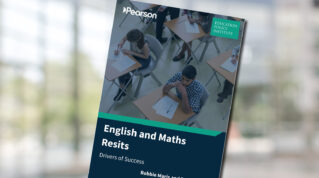Abingdon and Witney College staff have called off a strike after voting to accept an improved pay deal worth up to 8 per cent.
The deal also includes an agreement that closure days over the Christmas period will not be taken from staff holiday entitlements, which gives staff five additional days of holiday to use throughout the year.
The pay award, reached after negotiations with the University and College Union, will see an 8 per cent increase for the lowest paid, 5 per cent for middle earners, including lecturers, and 3 per cent for the highest earners within management.
Strike action was suspended at Abingdon and Witney College, based in Oxfordshire, whilst staff members were consulted on the deal.
The deal was put forward by the college in July but only accepted by UCU members last Friday after negotiations concluded.
Staff across the country have called for a 10 per cent pay increase to help with the cost-of-living crisis.
More than 20 other colleges will continue strike action over low pay offers this week and next.
The Association of Colleges recommended a 2.5 per cent pay increase earlier this year in June, which the UCU rejected leading to strikes in colleges.
UCU regional official Nick Varney said: “This deal is the result of determined organising from our members at Abingdon and Witney. We are always willing to negotiate fairly with management and we recognise that the college leadership have negotiated with us in good faith.
“Other colleges need to learn from this approach as we are in the midst of a cost-of-living crisis and our members in further education are taking action like never before with around 4,000 college staff on strike across England.”
Abingdon and Witney College principal, Jacqui Canton, said: “The college is absolutely committed to supporting our staff wherever we can, and we fully appreciate how hard the cost of living challenges are for everyone, so we were pleased to be able to prioritise staff pay so significantly this year.
“Our more recent discussions with UCU have included commitments to continue our positive dialogues in relation to pay and workloads, and to ensuring that members are actively involved in providing feedback on future strategic direction, so we are hopeful that constructive conversations will continue moving forwards.”

















Your thoughts